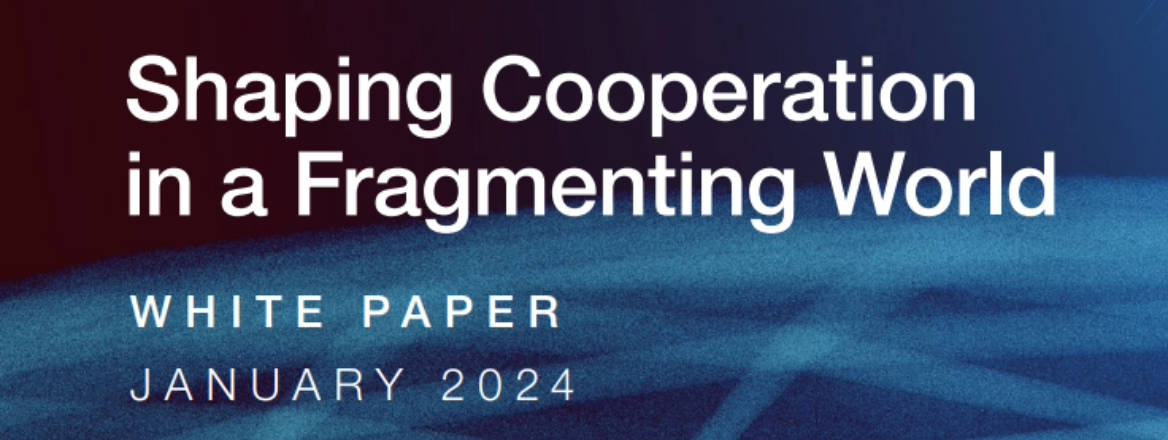RUSI Contribution to WEF Paper: Shaping Cooperation in a Fragmenting World
On Monday 15 January, the World Economic Forum published its new white paper outlining the most critical contemporary challenges facing policymakers and communities around the world.
The white paper was authored by members of the Global Future Council on the Future of Geopolitics, including RUSI’s Director-General, Dr Karin von Hippel.
It highlights four key challenges, including: mounting global insecurity and geopolitical competition; the impacts of climate change; managing new and emerging technologies; and the importance of ensuring the benefits of trade are distributed more equally.
In her co-authored chapter on global security, Dr von Hippel reflects on the rising tension between the great global powers and the effect this has had on reducing international cooperation and engagement.
In particular, the authors outline how the “re-militarization of regional security” – including Russia’s invasions of Georgia and Ukraine, as well as rising military tensions between the US and China in the South China Sea – has characterised the previous decade and a half of global geopolitics.
Together with her co-authors, Dr von Hippel said:
The world is on a collision course, and both the global economy and capacity to manage global challenges are likely to be collateral damage – indeed, they already are. Avoiding acute crises will require courage and creativity. Much of this must lie at the level of national action and bilateral diplomacy. At the same time, however, multilateral mechanisms remain essential to avoiding wars, saving lives and promoting stability, even if, in the past, they may mainly have mattered in selective moments.
Dr Karin von Hippel
RUSI Distinguished Fellow, Director-General's Office


